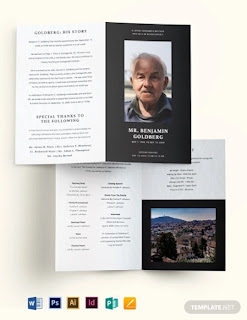 |
| Link to: "The 60-Something Crisis" |
Most healthy, active Baby Boomers are not content to sit at home, putter in their gardens, watch soap operas on TV, or crochet doilies for their sofa arms ... activities which once occupied the time of our elderly grandparents. We want to pursue lives which engage us, and make us feel as if we are getting the most out of the final decades of our life. But, how do we do that?
One way to find the guidance you need to navigate the final quarter of your life is to read the inspiring book, "The 60-Something Crisis - How to Live an Extraordinary Life in Retirement." It will help you to realize that reaching retirement is not the end of the useful part of your life. Indeed, it may be the very beginning of a period of time during which you could be your most productive and/or create the most amazing memories.
The author, Barbara Pagano, points out very early in the book that the vast majority of people today feel healthy and energetic when they reach their 60's. People our age still get exercise, wear Fitbits and Apple watches, go dancing, play golf or tennis and, best of all, many of us still look pretty good. Many of us are also health conscious, watching our weight and what we eat.
However, once we reach our mid-70s, research shows that our happiness often begins to drop off. The incidence of suicide and loneliness increases at this age. We may have regrets, especially regrets about not having achieved our dreams and aspirations.
Is there a way to re-write this script and change the outcome of this final period of life? Yes!
"The 60-Something Crisis" is a Different Kind of Retirement Book
As you read this book, you will begin to evaluate your retirement years in a different light ... a much healthier, happier approach. First, you will redefine what it means to work in retirement. The author points out in the first section that retirement is a major disrupter in your life. It can be a time of disappointment and frustration, unless we change our current path, and choose a better one.
The second section of the book discusses how you can find a future that is truly your own. Here are the important topics discussed in this section:
Geography of Place - What place makes you happy? This could be the time in your life when you should move there, wherever that may be. Some couples even pull up roots and embrace a nomadic lifestyle together. This is the time to enjoy the places and lifestyle which make you happy, now that you are no longer tied to living out your remaining years in the same place you have always lived.
Yield - While there are many definitions of yield, in this context it is described as "our beacon of triumph leading us to meaning and well-intentioned living." Whatever work you choose to do in your remaining years, it must offer a "yield" or return in value. This would include getting "fair pay for your value, control of your time, and a chance for creativity." We all want to feel that there is a value to the way we are spending our time during this part of our lives.
Freedom - Barbara Pagano describes this as "fiercely owning your life." This is your opportunity to pursue activities which you consider important. If doing this makes your life feel new, she emphasizes that "to feel the newness of life after 50 or 60 years of living is extraordinary."
Kinship - Ms. Pagano asks in this chapter, "Are friends and family more important than eating kale?" The answer is a resounding "yes." It is very important that you do not become socially isolated as you age. While a huge number of people in their 80s and 90s live alone, it is more important than ever to find ways to lead active social lives, even if you prefer to live alone.
What's Next in Your Retirement?
The last part of the book emphasizes how important it is NOT to squander your last decades of life. If you want to know how to get the most out of your final 25 years, reading this book is a good place to start. It will open your eyes to all the possibilities you still have left in your life!
As I read this book, I analyzed how I might apply it to my life, since I am now in my mid-70s and certainly do NOT feel depressed or dissatisfied. Why is that?
 |
| Details about this: Framed Surfer Photo |
I have used my life experiences to create a line of jewelry engraved with a variety of inspirational words and slogans. I also spend hours nearly every week at our local Southern California beaches and similar locations, and have used some of the photos I have taken to create unique products on my Etsy store, DeborahDianGifts. What fun I have taking photos and arranging to have them printed on framed posters, t-shirts, coffee mugs and a host of other items. I'm living in a part of the country which makes me happy, doing things I enjoy.
I am benefiting in all the ways the book recommends, including enjoying the geography of a place I love, getting a yield from it, having freedom, and even finding kinship with the people who walk with me and work with me on my different pursuits. As Barbara Pagano suggests, I feel like I'm living "an extraordinary life!"
I encourage you to read this book and begin to examine your life and improve the quality of your retirement years. If I can do it, you can, too!
Enjoyed this post? Never miss out on future posts by following us. You will receive a weekly email with the most current post.
If you are interested in learning more about how to have a successful retirement, saving money, financial planning, Social Security, Medicare, where to retire, common medical issues as you age, travel and more, use the tabs or pull down menu at the top of the page to find links to hundreds of additional helpful articles.
Disclosure: This blog may contain affiliate links. If you decide to make a purchase from an Amazon ad, I'll make a small commission at no extra cost to you.
You are reading from the blog: http://www.baby-boomer-retirement.com
Photo credit: Amazon book cover and my Etsy Store: http://www.etsy.com/shop/DeborahDianGifts







